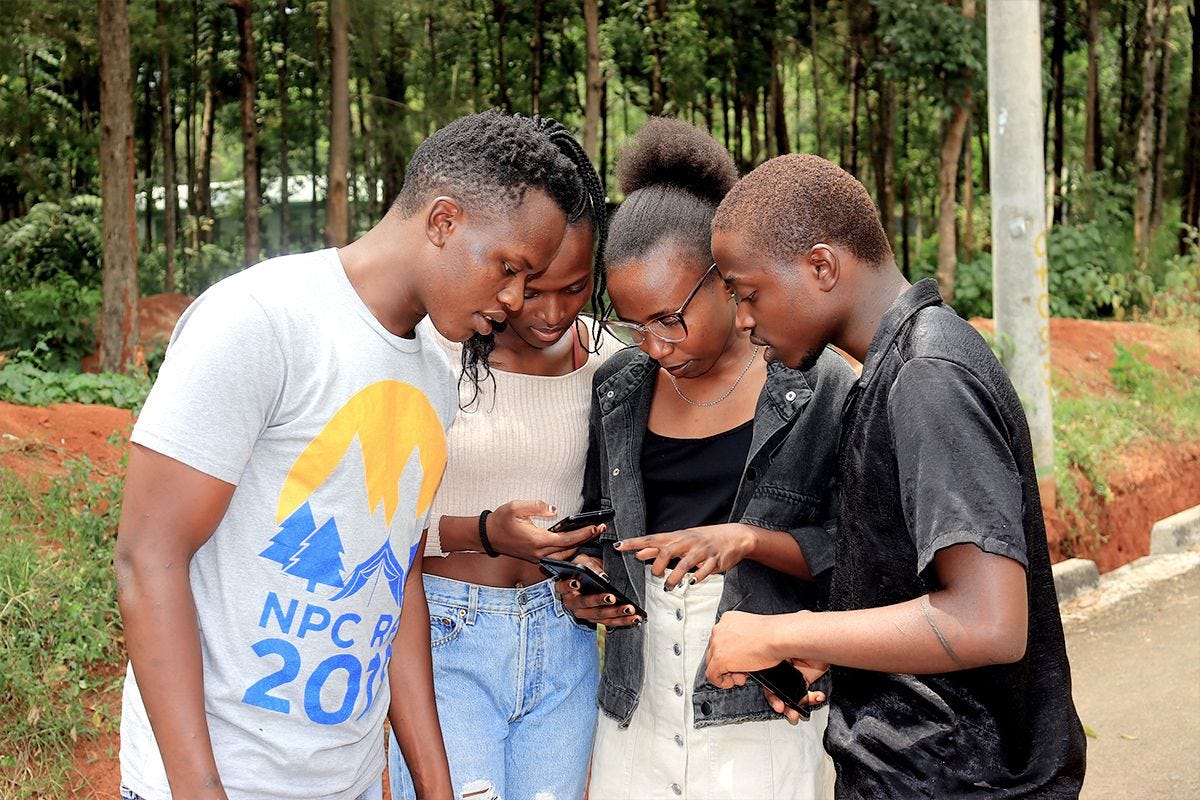We need to talk: varsity podcasters create ‘safe talking spaces’ for youth
As podcasts gain appeal across Africa, young podcasters are riding a wave fueled by the rising number of free hosting platforms, to create virtual, peer-to-peer conversation rooms
## As podcasts gain appeal across Africa, young podcasters are riding a wave fueled by the rising number of free hosting platforms, to create virtual, peer-to-peer conversation rooms where they can freely articulate their most pressing issues.
By Conrad Onyango, bird story agency
At the height of the pandemic, geographical distance from campus and COVID-19 restrictions had made it difficult for most Kenyan University students to interact and engage as often as they had before and were used to doing.
Owen Konzolo, 22 and three of his campus friends began to look for ways to kill the pandemic boredom and the sense of alienation that had ensued.
One night in December 2020, in a ‘dingy’ little campus room, the four, armed only with a smartphone, recorded their first 20-minute episode, signed up on Anchor - Spotify’s free podcast hosting platform - and uploaded it.
But there was a challenge.
“The production quality was really bad because I never used microphones,” recalls Konzolo who plays the host for the podcast christened, ‘We need to talk’.
To their delight - and despite the quality challenges, their debut show ‘introduction to podcasting’ , where the crew introduced the podcast and themselves, was received positively.
Within 24 hours, the episode had already attracted a following, which, for their first project and from a remote location hundreds of miles away from Kenya’s capital, Nairobi, seemed incredible.
“It was really successful and huge. We had over 1,000 listens in the first 24 hours which we never expected. It really motivated us and kept us going. From there, we never stopped,” narrated Konzolo.
The fourth-year Communications and Media technology student at Maseno University - a sprawling campus some 400 kilometers northwest of Nairobi - described his team's podcast as ‘a gateway'. "We need to Talk" offers youth a ‘safe space’ to talk about anything and everything on topics that Konzolo says usually only get celebrity attention.
“I decided to do this with my friends so that we can keep each other alert on everything that is happening across the world and how to cope with stuff that we need to talk about but we never get to say because we are afraid no one will listen to us,” he explains.
The crew dissects social issues ranging from celebrity scandals, sex education and controversial topics that erupt from social media platforms and around campus, including body shaming, cyberbullying, peer pressure and relationships non-negotiables.
Konzolo and his team are hardly alone in their endeavour.
A December 2021 Report, "IS THIS MIC ON?" Exploring how podcasting is taking root across Africa shows that while the podcasting ecosystem is still in a nascent stage, audiences have started discovering new voices as fresh perspectives continue to emerge through the medium, across the continent.
The report authored by Africa Podfest in collaboration with Baraza Media lab shows most young Africans are listening to personal development-themed content (21.5 percent), while culture and arts, business and leadership and entertainment are themes battling for second position with around 10 percent listenership, each.
The report interviewed twelve independent African podcasters from Cameroon, Nigeria, Tanzania, Kenya, South Africa, Egypt, Zambia, Sierra Leone, and Botswana and also shows that around 8 percent of listeners prefer news and current affairs served through podcasts.
Audiences have a thirst for more, says the report while pointing out that access to resources and infrastructural gaps are making it difficult for existing and new podcasters to sustain their content production.
“It takes time to record a podcast. You also have to do research and source for guests who are well conversant with the topics that impact lives of your audience,” affirms Konzolo.
As more people across the continent gain access to the internet and as smartphones ands data become cheaper, so space is being freed up for the youth to articulate their issues - especially when compared to broadcast media, according to Konzolo.
“In our age-group it is difficult to find most of us watching tv. Most of the time you will find us on the internet. Availability of streaming services is impacting the growth of podcasts positively,” he explained.
Podcast, an on-demand technology is gaining popularity across the continent due to its ability to keep people engaged for longer periods of time, allowing users to dig deeper into issues and topics while getting personal without offending the target audience.
According to the report, youths aged 25-35 years are the heaviest consumers of podcasts made in Africa- with their most preferred timing being early in the morning to noon and late in the evening to midnight.
Google podcasts (29.9 percent) are the most prominent on the continent followed by Apple (20.9 percent) and Anchor (14.9 percent) the latter being more popular than its parent, Spotify (7.5 percent).
As the crew prepares to begin season two of the podcast, Konzolo says they are looking to invest in new equipment and up their content game with depth and quality.
“I plan on giving audience new and interesting content every week to keep them glued for... 2022,” Konzolo said.
As to their future content, Konzolo is working on introducing human-interest stories, getting more high profile guests to shore up listener numbers and perhaps start commercializing the platform.
bird story agency



